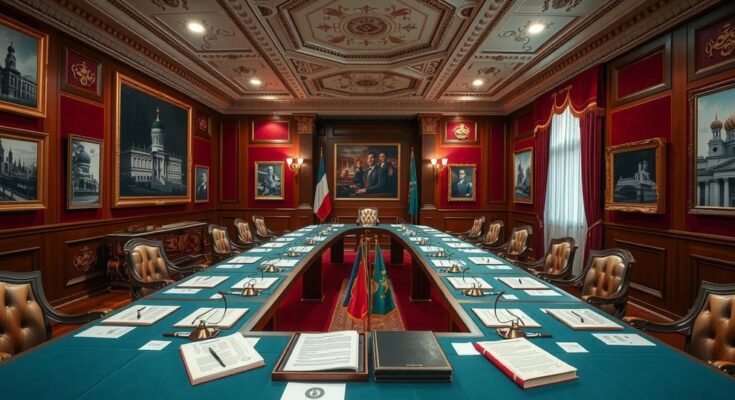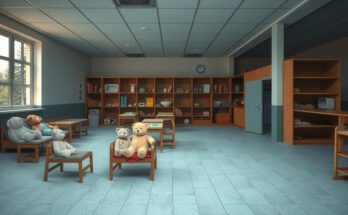North Korean officials have traveled to Moscow amid ongoing peace talks led by President Trump and President Putin to potentially boost military support for Russia due to ongoing conflict in Ukraine. The visit includes a health delegation to address healthcare system challenges, amidst speculation about compensation for military assistance. However, North Korea’s ambitions for advanced weaponry may face setbacks due to international negotiations on strategic non-proliferation.
North Korea is enhancing its diplomatic relations with Moscow as President Donald Trump and President Vladimir Putin pursue a ceasefire in the Russia-Ukraine conflict. Recently, North Korea dispatched both economic and health delegations to Russia, indicating its intentions to seek compensation for military support provided during the war.
A government delegation led by Minister of External Economic Relations, Yun Jong-ho, traveled to Russia to engage in discussions, particularly amid ongoing peace negotiations influenced by the recent phone call between Trump and Putin. This call resulted in an agreement by Putin to pause attacks on Ukrainian energy infrastructure, a crucial step towards peace.
In addition to the economic delegation, a working-level team from the Ministry of Public Health, led by Vice Minister Jon Sol-ryong, also arrived in Russia. This visit highlights North Korea’s ongoing struggles with its healthcare system, exacerbated by international sanctions, as the opening of the new Pyongyang General Hospital has faced delays due to equipment shortages.
Meetings took place in Pyongyang between Russian Deputy Foreign Minister Andrey Rudenko and North Korean officials, including Foreign Minister Choe Son-hui. These discussions centered on the future of political ties between the two nations, possibly hinting at an impending visit by Kim Jong-un to Moscow for it if celebrations.
However, Pyongyang’s aspirations for military technology from Russia may face limitations. Both Trump and Putin aim to incorporate strategic weapons non-proliferation within their ceasefire negotiations, which could hinder North Korea’s requests for advanced military technology support.
Despite the challenges, North Korea has been an integral player in Russia’s recent battlefield successes, especially in retaking the Kursk region from Ukrainian forces. Reports indicate that North Korean troops, particularly specialized units operating independently, have contributed significantly on the ground, working in conjunction with Russian forces to enhance combat capabilities.
In conclusion, North Korea’s increasing engagement with Russia underscores its desire for economic and military support amid ongoing geopolitical tensions. However, the challenges posed by nuclear non-proliferation negotiations may limit Pyongyang’s ambitions for advanced technology. As peace negotiations continue, the evolving dynamics between North Korea and Russia will play a pivotal role in the regional balance of power.
Original Source: koreajoongangdaily.joins.com




